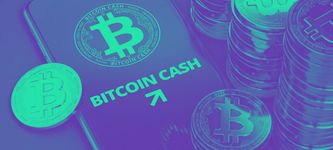Offenlegung von Werbung
CryptoMonday.de hat es sich zur Aufgabe gemacht, Nutzer*innen zu helfen, mehr über den Handel, das Investieren und die Zukunft der Finanzen zu erfahren. Wir erhalten von einigen Anbietern auf unserer Website Provisionen, was sich auf die Positionierung in unseren Listen auswirken kann. Dieses Modell der Partnerwerbung ermöglicht es uns, unseren Lesern weiterhin kostenlose Inhalte zur Verfügung zu stellen. Unsere Bewertungen werden davon nicht beeinflusst und sind unparteiisch. Mehr über unser Geschäftsmodell erfahren Sie hier.











